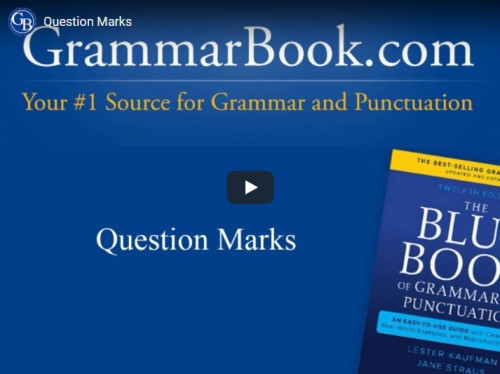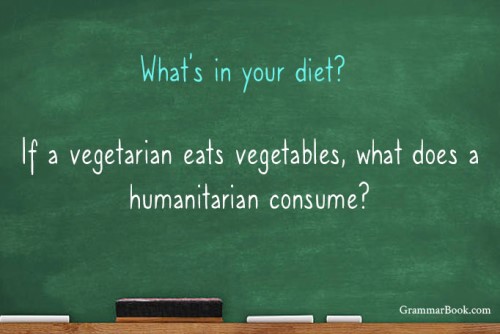Coordinating Conjunctions
|
|
A coordinating conjunction is a word that connects other words or phrases as well as clauses of equal rank.
The seven coordinating conjunctions are for, and, nor, but, or, yet, and so. (One way to remember them is by using the acronym FANBOYS as a mnemonic device: For And Nor But Or Yet So.)
We use coordinating conjunctions with great frequency in our communications:
I would like lettuce and tomato with my sandwich, but please go easy on the mayo.
Paula doesn't want to ski this winter, nor does she care to go ice fishing.
Roger has a clumsy yet effective way of fixing broken appliances. |
Coordinating Conjunctions in Different Roles
A coordinating conjunction can function with many different parts of speech and sentences such as nouns, verbs, adjectives, adverbs, prepositional phrases, and clauses.
Noun: Should we buy the van or the SUV?
Verb: The party guests ate and drank through the night.
Adjective: That costume is colorful but gaudy.
Adverbs: Slowly yet surely, Jane will finish writing her book.
Prepositional Phrase: The cabin you're looking for is either beyond the stream or over the ridge.
Clause: The band is exhausted, so they need to postpone several tour dates. |
Let's look at more examples of how coordinating conjunctions connect words, phrases, and clauses. Also continue to note how they unite parts of equal rank.
Words: Rain or shine, we will run and compete. (two nouns: rain, shine; two verbs: run, compete)
Phrases: At night or by day, the guards protect the perimeter and monitor activity. (two prepositional phrases: at night, by day; two verb phrases: protect the perimeter, monitor activity)
Clauses: The checking account is getting close to the minimum balance, so we need to make a deposit soon. (two independent clauses: the checking account is getting close to the minimum balance, we need to make a deposit soon)
Punctuation with Coordinating Conjunctions
Commas separate more than two items in a series joined by a coordinating conjunction, including a comma before the conjunction (often referred to as the serial or Oxford comma).
Examples
The salad includes berries, pine nuts, and blue cheese.
Please call, write, or stop by when you've made a decision. |
A comma also separates two independent clauses connected by a conjunction.
Examples
The league is revising its policy, and we will soon announce the new rules concerning playing through a hole on the golf course.
The car needs to be moved by ten p.m., or the city will issue a citation against it. |
When separating independent clauses, the coordinating conjunctions yet and so can be punctuated with a comma or a semicolon.
Examples
The path is narrow and long, yet on they go.
The path is narrow and long; yet on they go. |
When main clauses are short and joined by the conjunction and or or, the comma may be omitted as style and preference determine.
Examples
The path is narrow and long yet on they go.
Tonight the stars will come out and the moon will be full. |
Starting a Sentence with a Conjunction
Along the way you may have learned or been told to never begin a sentence with a conjunction. The thinking behind this is well intended, as it means to prevent us from writing choppy or fragmented sentences.
Contrary to unyielding guidance, starting a sentence with a conjunction is acceptable as long as it maintains principles of good writing form. In particular:
make sure the coordinating conjunction introduces a main clause related to the previous sentence: The abandoned bulldozer was a hulking metal mass on the roadside: an immovable junkyard fist on the ground. But the town officials would not have it removed.
be sparing in starting sentences with conjunctions. This technique should be used only to emphasize a statement or thought or otherwise achieve writer style or voice in well-chosen places.
remember that a comma precedes a coordinating conjunction that connects two independent clauses, but a comma does not follow a conjunction that begins a following sentence unless a parenthetical thought is inserted.
|
| Incorrect: The abandoned bulldozer was a hulking metal mass on the roadside: an immovable junkyard fist on the ground. But, the town officials would not have it removed.
Correct: The abandoned bulldozer was a hulking metal mass on the roadside: an immovable junkyard fist on the ground. But, knowing what it stood for, the town officials would not have it removed. |
|
Related Topics
Do You Need Commas Before Conjunctions?
Connecting Sentences with Commas and Semicolons
|
View and comment on this
article on our website.
|
|
|

|
Pop Quiz
Identify the correctly worded and punctuated sentence from each pair.
1a. Let's go to the hardware store, buy a hammer, a screwdriver, pliers.
1b. Let's go to the hardware store and buy a hammer, a screwdriver, and pliers.
2a. The dog looks to be feeling much better now so we don't need to take it to the vet.
2b. The dog looks to be feeling much better now, so we don't need to take it to the vet.
3a. Should Jason study mathematics or engineering?
3b. Should Jason study mathematics, or engineering?
4a. The new air conditioner does not use as much energy, nor does it require extra maintenance.
4b. The new air conditioner does not use as much energy. Nor, does it require extra maintenance.
|
 |
The Blue Book of Grammar and Punctuation
by Lester Kaufman and Jane Straus |
The Authority on English Grammar! Twelfth Edition Now Available
An indispensable tool for busy professionals, teachers, students, homeschool families, editors, writers, and proofreaders.
Available in print AND as an e-Book! Over 2,000 copies are purchased every month!
To order the book, simply click the link to order the book from the GrammarBook.com website.
|
Free BONUS Quiz for You!
[[firstname]], because you are a subscriber to the newsletter, you get access to one of the Subscribers-Only Quizzes. Click here to take an Apostrophes Quiz and get your scores and explanations instantly!
We will be adding many more quizzes this year to our already substantial list of them. If you have suggestions for topics we have not yet covered, please send us a message at help@grammarbook.com.
|
Hundreds of Additional Quizzes
at Your Fingertips
Subscribe now to receive hundreds of additional English usage quizzes not found anywhere else!
Teachers and Employers
Save hours of valuable time! You may assign quizzes to your students and employees and have their scores tallied, organized, and reported to you! Let GrammarBook.com take the hassle out of teaching English!
"Fun to test my skills."
"The explanations really help ... thanks!"
"I can select the quizzes to assign to my students, and then the results are reported to me automatically!"
99¢
QUIZZES
|
Don't need all the quizzes?
You can now purchase the same quizzes individually for ONLY 99¢ each.
Purchase yours here.
|
If you think you have found an error in a quiz, please email us at help@grammarbook.com
|
Wordplay

Pop Quiz Answers
1b. Let's go to the hardware store and buy a hammer, a screwdriver, and pliers.
2b. The dog looks to be feeling much better now, so we don't need to take it to the vet.
3a. Should Jason study mathematics or engineering?
4a. The new air conditioner does not use as much energy, nor does it require extra maintenance.
|
 |
English In A Snap:
68 One-Minute English Usage Videos FREE |
Learn all about who and whom, affect and effect, subjects and verbs, adjectives and adverbs, commas, semicolons, quotation marks, and much more by just sitting back and enjoying these easy-to-follow lessons. Share them with your colleagues (and boss), children, teachers, and friends as well! Click here to watch.
|
|





